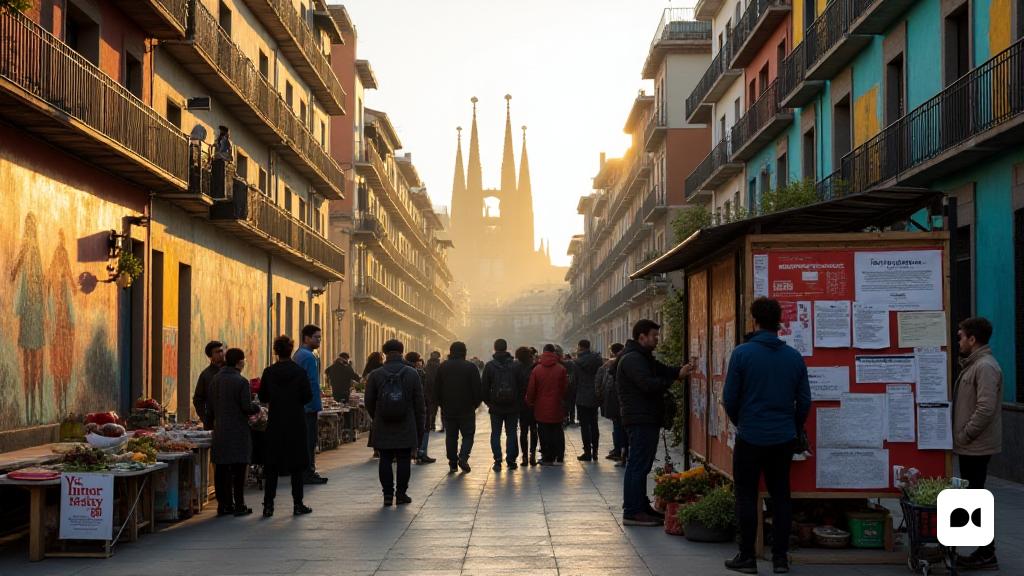The housing crisis grows in Barcelona
As Barcelona continues to evolve, access to decent housing has become a hot issue. In the last decade, rental and purchase prices have increased more than 30%, bringing a true housing emergency to the city. With an average rent that exceeds 1,000 euros, more than 40,000 families have suffered evictions, most of them flats belonging to large owners with multiple real estate.
The ESAL Agreement: A Light of Hope
In 2020, to deal with this critical situation, several social housing entities, together with the Barcelona City Council, signed an agreement called ESAL. The aim was quickly addressing housing needs through the establishment of protected rentals and cooperative housing projects. Although the first stages of the agreement advanced promising, their implementation was slowed down with the arrival of the new socialist government in 2023.
Reactivation and new commitment
Recently, thanks to the pressure exerted by the cooperative housing organizations, the municipal government has taken measures to restart the rehabilitation and construction of buildings provided for in the agreement. Financial aid has also been improved for rehabilitation projects and small promotions, as well as the assessment of social housing needs.
Importance of the ESAL Convention
The ESAL agreement not only establishes the construction and rehabilitation of 1,000 homes over the next ten years, but also regulates the transfer of use of municipal soils for affordable housing. Of these homes, 60% will be intended for social rent, while 40% will be due to transfer of use, guaranteeing access to housing for those who need it most.
Advances and delays
Since the signing of the agreement, 600 homes have been ceded and are in different stages of construction. However, the agreement was stagnant for more than 18 months with the entry of the new government. This stop has led to a strong reaction from organizations such as Habicoop and the Solidarity Economy Network, which have mobilized efforts to demand compliance with the agreement.
Motions and Publishing Futures
At the end of 2024, the Municipal Plenum approved a motion that commits the City Council to cede the remaining 400 homes to achieve the goal of 1,000 homes for 2030. In addition, a new agreement has been proposed to extend the construction of social housing in the following years.
Future perspectives
Glòria Rubio, a member of Habicoop, emphasizes that the extension of the agreement is essential for its continuity and the increase in social housing. His vision is clear: housing must be a community good, managed democratically and accessible to everyone.
Access to cooperative housing
Those interested in accessing the homes must be part of the Register of Applicants for Official Protection Housing of Barcelona. In addition, being members of the cooperative that manages the homes is an essential requirement, together with the fulfillment of the established admission criteria.
Reproduction of the model in Catalonia
Rubio states that the ESAL model can be replicated in other regions of Catalonia, given its effectiveness. Political will is key to implementing cooperative and community housing policies that benefit local populations.

